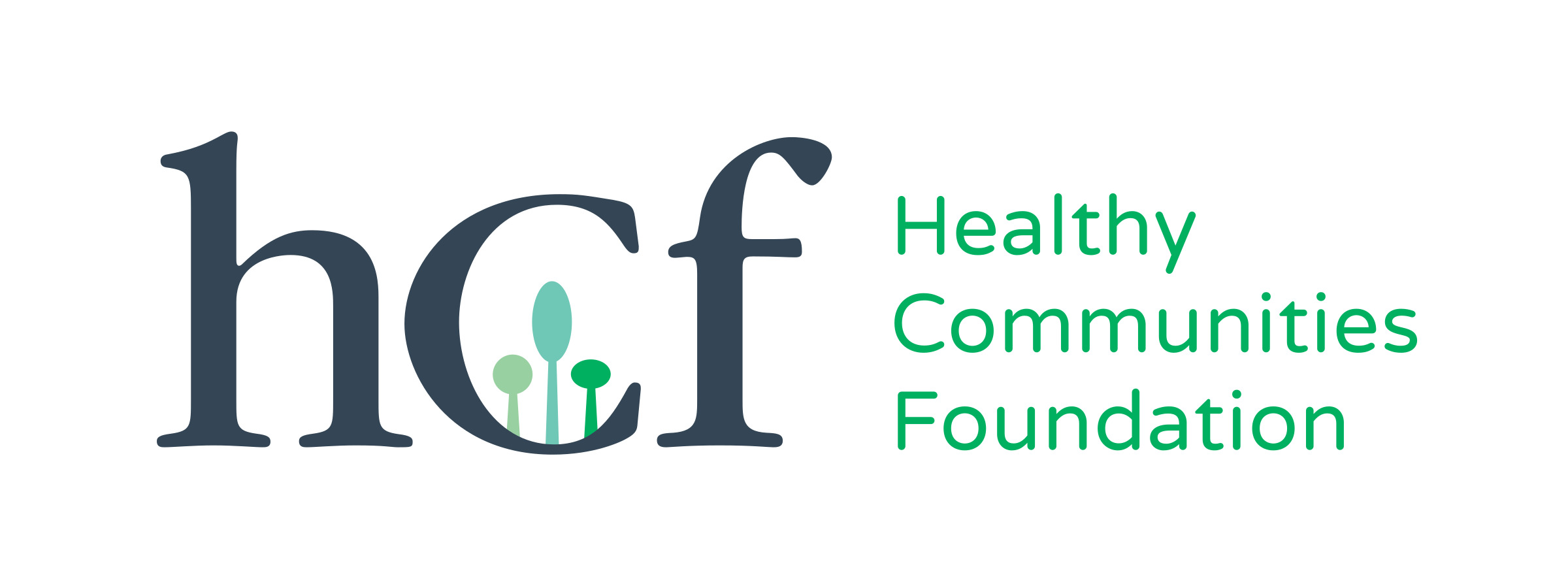We stand against racism. We support Black communities.
HCF Statement Against Racism Towards the Black Community

- Posted at
- in News
- by Jackie Rodriguez
Systemic and institutional racism is intricately woven into the fabric of our society. The senseless murders of George Floyd, Tony McDade, Ahmaud Arbery, Breonna Taylor—and countless others whose lives were stolen throughout the history of this country—are tragic testaments to this. At Healthy Communities Foundation, our commitment to health goes beyond the absence of illness or disease. It is about creating the conditions for all of us to thrive: to experience physical, mental, and social wellness, where every individual has the whole-health ability to contribute to the health of the community. Therefore, we cannot ignore the physical and structural violence that Black communities have experienced in this country, which manifests in inequitable health outcomes and a continued threat to well-being.
Black communities are in deep pain, and through that pain, have continuously and resolutely declared that Black Lives Matter. We join in this movement towards building healthy Black communities.
The health of a community is inextricably tied to the health of the people that live in it. In fact, social and economic factors dictate 40% of health outcomes. When we peel back the layers to understand why health outcomes differ from one community to another, race is the most influential factor. Structural racism, transgenerational trauma and toxic stressors faced daily have led to and have sustained the inexcusable death gap for Black communities. This gap exists not just from acts of violence, but from “weathering” – the toll that racism takes on health outcomes over time, literally shaving years off of life.
Racism is the ultimate underlying condition and it needs to be addressed.
We see the effect of systemic and institutional racism in the high maternal mortality rates among Black women. We see it in the underdiagnosis and denial of disease and pain among Black patients. We see it in the disproportionately high incarceration rates and cases of police brutality among Black people. We see it in the overrepresentation of Black people as essential workers, in the gig economy, and industries where working from home is not an option. We see it in pervasive unemployment and underemployment. These are all layers of risk for contracting COVID-19 and experiencing income instability during a global pandemic.
During this public health crisis, we also acknowledge the complexities of this moment, where communities persistently feel their health and safety are at risk and how the enduring legacy of anti-Blackness has compounded this in recent days. Deep racial tensions are particularly palpable in the HCF region, since housing and economic policies have made Chicago one of the most segregated cities in this nation and has spilled over into surrounding suburbs. This moment calls for unity instead of further division. This moment calls for healing.
We cannot achieve health equity without addressing racial inequity.
We recognize that philanthropic organizations can and should do more–we cannot continue to triage racial equity issues without addressing their root causes. Black communities have been harmed by long-standing anti-Black policies in housing, health and education that have determined where people can live, learn, work and play. We are here to listen. We recognize that communities know what they need and acknowledge our role in co-creating solutions to address systems that have long prevented Black communities from reaching their full health potential.
Our vision of fair and just communities is one where race is not a health determinant.
During the COVID-19 pandemic, we have learned just how truly connected we all are—the health of one individual is directly tied to the health of another. At this moment, we must call each other in to our shared humanity—when we recognize our own humanity, we can see and honor the humanity of others. Our histories and our futures are intertwined. Until Black Lives Matter in all our policies, practices and systems, we must continue to do the work to collectively heal and restore health and wellness for all.
**********
We have a long way to go, but we are committed to this work for the long haul. With this in mind, we would like to share resources that have been medicine for us and our community partners during this time.
- My Grandmother’s Hands: Racialized Trauma and the Pathway to Mending our Hearts and Bodies: by Resmaa Menakem.
- Breathe: A Letter to My Sons: by Imani Perry
- Blackness & Belonging: A podcast with Prentis Hemphill discussing how anti-Blackness shapes all of us to deny our own humanity, the role of shame, and how we can heal. With accompanying reflection practice.
- Rest as Reparations: A podcast with Tricia Hershey of The Nap Ministry. With accompanying reflection practice.
- North Star Health Collective: An example of a Minneapolis-based coalition of health providers working at the intersection of COVID-19 and the response to George Floyd.
- bit.ly/ANTIRACISMRESOURCES: compiled by Sarah Sophie Flicker and Alyssa Klein, May 2020.
- Ella’s Song: by Sweet Honey in the Rock. Because “we who believe in freedom cannot rest until it comes.”
- Talking with Children about Racism, Policy Brutality and Protests: Aha! Parenting.
- Something Happened in Our Town: Video created by Niagara Falls Underground Railroad Heritage Center

